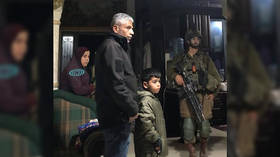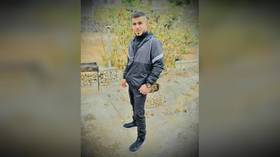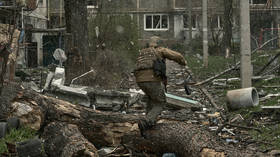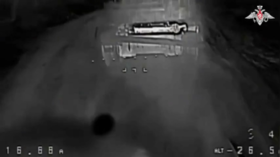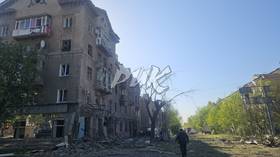‘New generation is capable of leading a new Intifada’
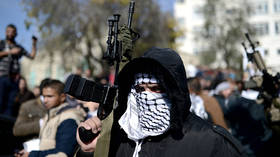
On December 28, shortly before the beginning of 2022, Palestinian Authority (PA) President Mahmoud Abbas visited the home of Israeli Defense Minister Benny Gantz. The meeting was the first between Abbas and a senior Israeli official inside Israeli territory since 2010 and was, according to Israeli media reports, focused on discussing the development of “security coordination” between Israel and the PA.
Days later, PA forces raided Jenin, making a number of arrests, following on from a similar Palestinian Authority operation to weaken armed groups in the area in late November. The chief of staff for Israel’s military, Aviv Kohavi, later praised the PA forces for their action, claiming that Israel had been planning a similar large-scale operation in Jenin, but had called it off when the PA began acting first.
Since last May’s Israel–Palestine crisis, after an 11-day war against Gaza took place, tensions have been continuing to build in the occupied territories. The subsequent torturing to death of a West Bank-based critic of the Palestinian Authority, Nizar Banat, by PA security forces, sparked fear of an uprising which could potentially oust PA leader Abbas, whose democratic presidential legitimacy expired in 2009.
To get to know more about whether an uprising is brewing in the West Bank and what connection this may have to the actions of the Palestinian Authority, I spoke to Dr. Ramzy Baroud, a Palestinian academic and journalist. First, I asked him what he makes of Abbas’ meeting with Benny Gantz, and whether this was tied to recent attempts to crack down on the Palestinian armed struggle, to which he answered the following:
“I think that the Palestinian Authority and Israel have something in common and that is to make sure there will be no rebellion in the West Bank.” He added: “The West Bank, as of last May, is undergoing two types of transformations; one is the rise of the new generation that is capable of indeed leading a new Intifada… the other change that is happening in the West Bank is the rise of the pro-armed struggle narrative.”
I also spoke on the issue to a Ramallah-based journalist who wished to remain anonymous for fear of persecution. Speaking over the phone, he told me that “everyone is fed up with the PA, they know that they simply collaborate with Israel and the people don’t consider them as a representative, but instead part of the occupation.” He went on to admit that he “was even surprised to see the way young people in Palestine are behaving; they are going to other villages to resist the settlers and soldiers, they are attending funerals of martyrs in their tens of thousands, they are much more inspired now.”
I asked what threat is being posed by the small, often poorly organized, armed groups which seem to be popping up all over the West Bank in villages and refugee camps. He answered that “there has always been groups, which call themselves as being associated with Al-Qassam [Hamas’ armed wing], Saraya Al-Quds [PIJ Party armed wing], Abu Ali Mustapha [PFLP armed wing] or Kataeb Shuhada al-Aqsa [unofficial Fatah Party armed wing], but the problem is that, due to PA spies, groups have little chance at this time to ever pose major threats, but maybe in the future this will change.” He said that the “biggest threat to Israel are the armed attacks by individuals who decide to carry out an operation without telling anyone, this way there is no way for anyone to get the word out about their intentions and, yes, now we are seeing more of this, it’s no surprise [the Israelis] are scared and that’s why Israeli soldiers are more trigger-happy now than in recent years.”
To explain this point further, I asked Ramzy Baroud about the nature of the growing Palestinian resistance in the West Bank, specifically as we have seen manifest in areas like Jenin, to which he answered:
“We see this happening in the Jenin area, but we see this happening beyond the Jenin area. Jenin has particularly, in many ways, been free from the direct oppressive influence of the PA, so it kind of served as a place in which that phenomenon could express itself, in an open way. However, it does exist in other parts of the West Bank and, the moment that an armed rebellion breaks out, I think there will be much more of a popular appeal to it in various other parts of the West Bank.”
Ramzy Baroud also added that “Mahmoud Abbas knows this,” about the way armed resistance seems to be growing in practice and seen as the primary solution. He made it clear that he believes Mahmoud Abbas “is really not fighting for his own survival at the helm of this so-called leadership, he is fighting for the brand that he had created. The brand of corrupt officials and a security force, armed, trained and sustained by American money and military intelligence, Israeli support even, and the support of various corrupt Arab regimes in the region.”
The Palestinian Authority, based in Ramallah, West Bank is run by the party of Mahmoud Abbas, Fatah, but the party itself seems to be on shaky legs after last year. Elections were called by the PA president at the start of 2021, which caused various separate Fatah Party lists to announce that they would run against each other. This then led to a brief internal clash between opposing factions of Fatah. There were also several incidents of Fatah factions launching armed attacks on one another, the most prominent of which was in April, when gunmen in the city of Al-Khalil, Hebron opened fire on the home of Lawyer Hatem Shaheen, who was running as a candidate on the al-Mustaqbal (‘The Future’) list affiliated with former Fatah strongman Mohammed Dahlan.
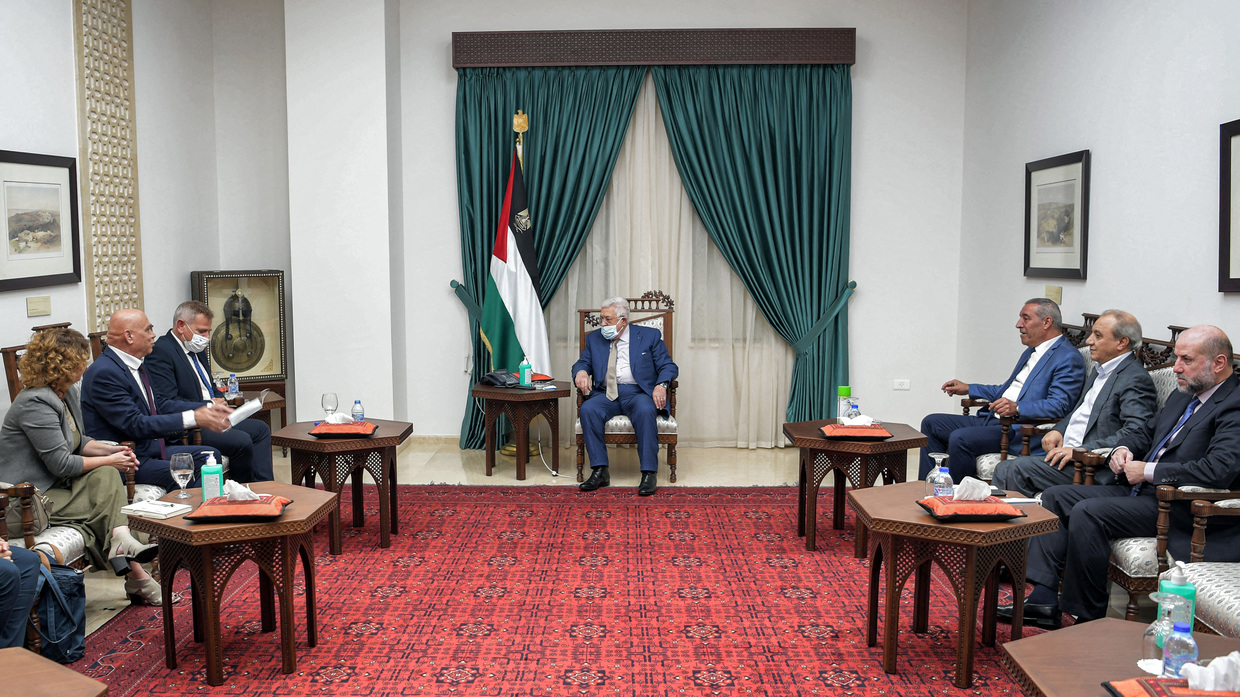
The elections were set to be the first in over 15 years, but were ultimately canceled by Abbas. The official PA position was that Israeli restrictions placed on voters in East Jerusalem was the reason behind the cancellation, but critics say that it was really down to the current leadership's fear of losing power if a democratic vote were held. Hamas, which won the last legislative elections, in 2006, was running a strong campaign and, due to Fatah running so many separate lists, it looked likely that Hamas would win. In addition to this, Marwan Barghouti, a prominent Fatah leader now held by Israel as a political prisoner, was threatening to run for Palestinian president and, due to his popularity amongst the Palestinian electorate, it would have been very possible that he could’ve dethroned Abbas.
“There is a serious concern that the moment Mahmoud Abbas disappears from the scene, certain branches of Fatah are planning to wage an internal rebellion for the internal definition and the soul of Fatah,” says Ramzy Baroud, affirming that he believes the ruling Fatah Party is itself in crisis. Not only this, but the fear of a battle for the control of Fatah is also part of the reason for the PA now intensifying its coordination with Israel and its battle to prevent armed rebellion in the West Bank.
Baroud added that: “Israel is very keen on [a Fatah rebellion] not happening. It also cannot afford to have the kind of rebellion that happened last May. For the first time in its history, Israel appeared to be truly scared [during the May rebellion], struggling to keep things together. It was a very dangerous precedent; where there was a near state of civil war going on in Israel itself, the West Bank was rising, East Jerusalem was on fire, Gaza was fighting back, it was unprecedented. Israel managed to contain that, but I don’t think Israel will be able to contain it again in the future and a similar rebellion could lead to the disintegration of the Palestinian Authority.”
In addition to the growing anti-PA resentment in the West Bank, the latest findings indicating that almost 80% of Palestinians polled say that Mahmoud Abbas should resign, is the question of the Palestinian Authority’s economic downfall. Ramzy Baroud says that the PA’s economic struggle is manufactured and shouldn’t really be referred to as an “economic crisis.” This is because there is no functioning economy in a conventional sense, in the West Bank, because it all goes through Israel. Due to the stranglehold that the Israeli government has on the PA’s finances, Baroud argues that, despite all his threats to do so, “Abbas cannot possibly operate outside of that model that is entirely dictated by Israel,” which is predicated on the Oslo Accords signed between the PLO and Tel Aviv.
The recent crackdowns inside the West Bank, by PA forces, have primarily seemed to target Hamas and Palestinian Islamic Jihad (PIJ), which has coincided with a rise in what would seem to be support for Hamas since last May. Similar crackdowns have occurred in the past, most notably following the 2006 Palestinian legislative elections, which Hamas won in a landslide. This resulted in Fatah, the United States and Israel’s rejection of the elections’ outcome and a planned coup against the Gaza based government, democratically elected in what former US President Jimmy Carter called a “free and fair” election. Despite the ‘Mecca agreement,’ facilitated by Saudi Arabia to form a unity government between Fatah and Hamas, Fatah’s PA went on to receive financial backing from the United States to persecute Hamas. Hamas pre-empted the planned coup – coordinated between the US Bush administration and PA Preventative Security Head Mohammed Dahlan – and defeated Fatah, taking complete control of Gaza.
Due to this history, a factional analysis is now being made, presenting the issue as again a Hamas-against-Fatah struggle in the occupied territories, but Ramzy Baroud argues that this is a misinterpretation of Palestine’s current predicament.
“I think that we have to be clear here, I don’t think that the issue here is about popularity for Hamas at the expense of Fatah… What I think we are talking about here is a different political model,” he proposed, stating that the “factional narrative of Hamas vs. Fatah or the Socialists, or Islamic Jihad” is no longer what we are dealing with. Instead he believes that there is a unified model under which Palestinians have tossed away belief in negotiating for a two-state model and believe only in resistance as a solution, stating that the distinction between armed and popular non-violent struggle is not one really made by Palestinians, but instead this is a Western way of looking at it.
“The support of the resistance is not necessarily support of Hamas as a political party, but it’s rather the support of anybody that is willing to resist and it just happens that Hamas is the major party that operates in Gaza,” he pointed out, adding that the support is also allocated to “the socialist groups, the Palestinian Islamic Jihad [PIJ] and even al-Aqsa Martyrs brigades [Fatah’s armed wing, not officially connected to the Party] and other Fatah affiliates in the West Bank.”
An example of the support for any resistance figures, Ramzy Baroud argued, came when six Palestinian political prisoners escaped from Israel’s Gilboa Jail last September. He noted that the primary hero for Palestinians of all political leanings and parties was Zakaria Zubeidi, who is a Fatah member and once led the Al-Aqsa Martyrs brigades (a Fatah armed group), calling the unified position on Zubeidi across Party lines “unprecedented.”
Israel repeatedly called for foreign powers to boost their aid to the Palestinian Authority late last year. The Israeli government also seems to be eying the prospect of boosting their own aid to the PA, but notably there are no high-ranking Israeli government officials who dare call for dialogue to discuss a two-state solution, as was the case in the past, when the Palestinian Authority’s leaders had formed such strong bonds with their counterparts in the Israeli government. Both Israeli Prime Minister Naftali Bennett and his power-sharing partner, Yair Lapid, oppose the idea that a Palestinian State should come from a thorough dialogue with the PA; this adds the additional layer of pressure, pitting them directly against the international consensus for ending the conflict. Unlike the situation under the former US administration of Donald Trump, the Israelis are not being given a direct say on what Washington’s policy will be when it comes to the Palestinians. President Joe Biden, although staunchly pro-Israel, has reverted back to the traditional US position of supporting the international consensus and this is potentially bad news for Israel.
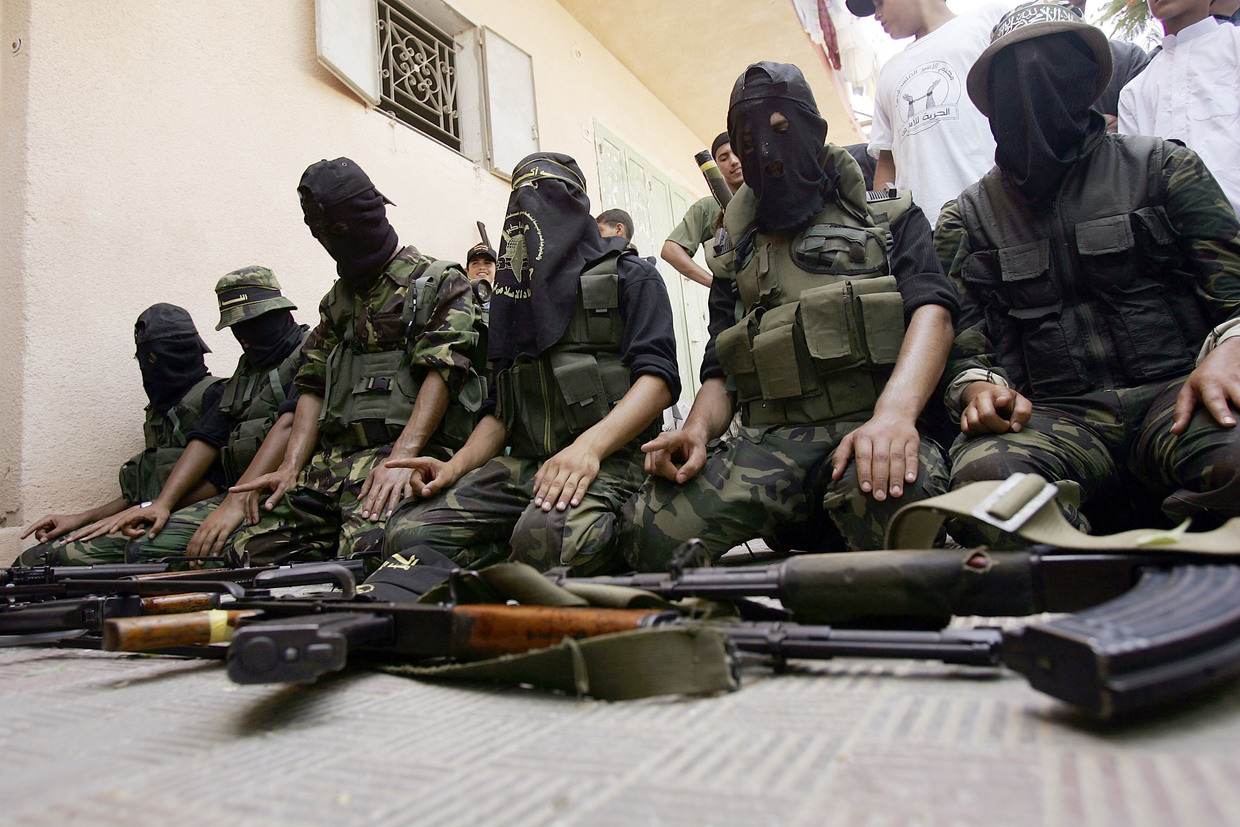
The strategy to simply strengthen the Palestinian Authority economically and with additional weapons in the West Bank may not be enough to prevent its downfall, as the closer Israel gets with Mahmoud Abbas, the further isolated the Palestinian public feels. Elements of the Israeli government, including its current Prime Minister, also seem to be opposed to the US plan to strengthen the PA’s standing with moves such as opening a consulate to deal with the PA in East Jerusalem. If Israel’s government cannot decide on a unified position on how to support the PA, this could also make its plan to prop up the leadership of Mahmoud Abbas’s Palestinian Authority a more arduous task.
If the Palestinian Authority, lead by Mahmoud Abbas’s Fatah Party, fails to consolidate power and hold on to its current position in the West Bank, it is very possible that a new phase in the Palestine-Israel conflict will be reached. The Oslo Process, beginning from 1993, ended the large-scale Palestinian rebellion (the Intifada) that had broken out in 1987 inside the occupied territories, and ushered in an era of failed dialogue. The Palestine Liberation Organization (PLO) had officially recognised Israel as a state and, by accepting UN resolution 242, accepted that the West Bank, Gaza and East Jerusalem were the only areas in which Palestine could be a future state. Out of Oslo, the Palestinian Authority was born and was tasked with managing small areas of the West Bank and Gaza. Although this model of partial PA control was supposed to lead to their expanded control over the territories, Israel refused to withdraw incrementally, as was stipulated in Oslo II, and instead, through settlement expansion, the Israeli presence — called 'occupation' by its opponents — became even more deeply entrenched.
The Second Intifada, in 2000, erupted out of the failure of the Peace Process to produce tangible results and, following the death of former PA President Yasser Arafat in 2004 after he was besieged by the Israeli military, the new PA model began under Arafat’s successor Mahmoud Abbas. The model set forward was a ‘status quo’ model, which has essentially led to the building discontent seen inside the occupied territories today. There is no longer any hope for the revival of the ‘Peace Process’ between the PA and Israel, in large part due to this being seen as unacceptable by most Israelis and, therefore, not worthy of support by its politicians.
On November 2, a new Palestinian organisation was founded, the ‘Masar Badil,’ calling itself the alternative to the Oslo Process and the Palestinian Authority in the West Bank. It has so far garnered open support from political parties inside Palestine, such as the Palestinian Islamic Jihad (PIJ) movement, and seeks to support “all the resistance forces inside Palestine” in order to achieve total liberation of Palestine. I spoke to some of Masar Badil’s founding members, asking for a comment on the rise of an armed rebellion in the West Bank, and got the answer that the organisation believes the young generation have reached the point where they’re on the verge of a new uprising.
Khaled Barakat, a founding member of Masar Badil, views the armed struggle element as one that has to be understood in its context, sharing with me that this only comes as a last resort historically, and pointing back to the absence of a unified armed struggle during periods of dialogue with either Britain or Israel during the past 100 years of struggle towards statehood. Gollowing a lack of positive results attained by an often corrupt elitist leadership class, from there, then, comes an uprising which seeks to make strides towards liberation using armed force as an alternative to empty platitudes and meaningless dialogue, he stressed.
The Israeli government and its allies seem to be trying to keep the status quo and may be considering the likes of former Fatah strongman Mohammed Dahlan – who currently works as Abu Dhabi Crown Prince Mohammed Bin Zayid’s right-hand man – as a valid replacement in the absence of Mahmoud Abbas. But it seems that one miscalculation and, without a consensus reached within the Israeli government on exactly how to maintain the PA and the status quo, everything could quickly get out of hand and, in the event that a new Intifada breaks out, Israel may be forced to make compromises in order to quell that uprising. If the majority of Palestinians now really support armed uprising, then all attempts to strengthen the PA at this time may be futile or, at the very least, may prove unsustainable.
